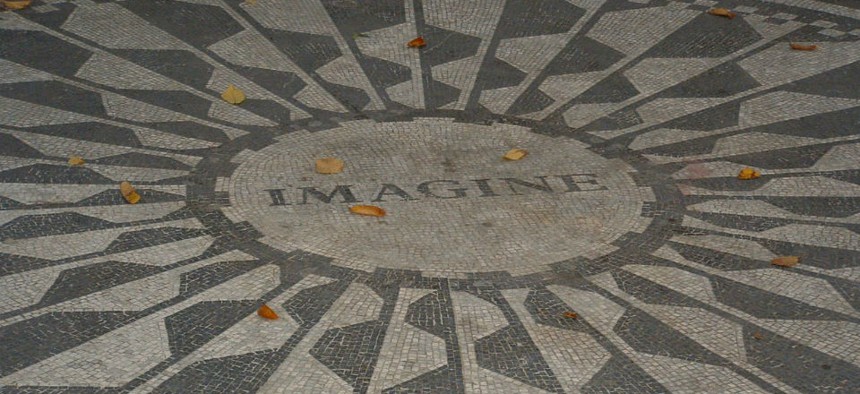
Strawberry Fields Memorial in Central Park, New York City. Wikimedia Commons
Few agencies enjoy being perennials on the Government Accountability Office’s high-risk list of programs with deep program management issues.
But perhaps some will take comfort in the words spoken on Tuesday by Tim DiNapoli, GAO’s director of acquisition and sourcing management, at a panel discussion on best practices for agencies still haunting the list, which has been compiled biennially since 1990.
Intending to encourage managers of the blacklisted programs not to lose hope, DiNapoli said, “I’m reminded of the words of John Lennon, who wrote, `You may say I’m a dreamer, but I’m not the only one,’ ” a reference to the late Beatle’s 1971 classic hymn to world peace “Imagine.”
Interagency contracting was taken off the high-risk list in 2013, “so it’s not impossible,” he assured colleagues.
Joseph Waddell, deputy associate administrator for acquisition and project management at the Energy Department’s National Nuclear Security Administration, noted that even though his large-scale projects have been on the list for decades, his team benefits from GAO’s oversight and finds its employees “reasonable,” though they approach agencies’ struggling to resolve problems “in the mode of `show us, don’t tell us.’ ”
Harry Hallock, deputy assistant Army secretary for procurement, said “oversight is good for us. We need auditors because we don’t step back to look. It helps us do our jobs,” he said.
DiNapoli stressed that agencies should come up with their own mission-based performance metrics for the corrective actions that might help them get off the list. And his auditors sympathize with the notion that changes in the environment can delay agency solutions. We have “good dialog” with managers of such ever-present programs as the Defense Department’s supply chain management, with whom the auditors agree on 98 percent of the facts, DiNapoli said. “We would like this [to be the case] at all agencies, to be able to reach out to one another and understand.”
And the world will live as one.
NEXT STORY: About the House Republicans’ New IRS Video







